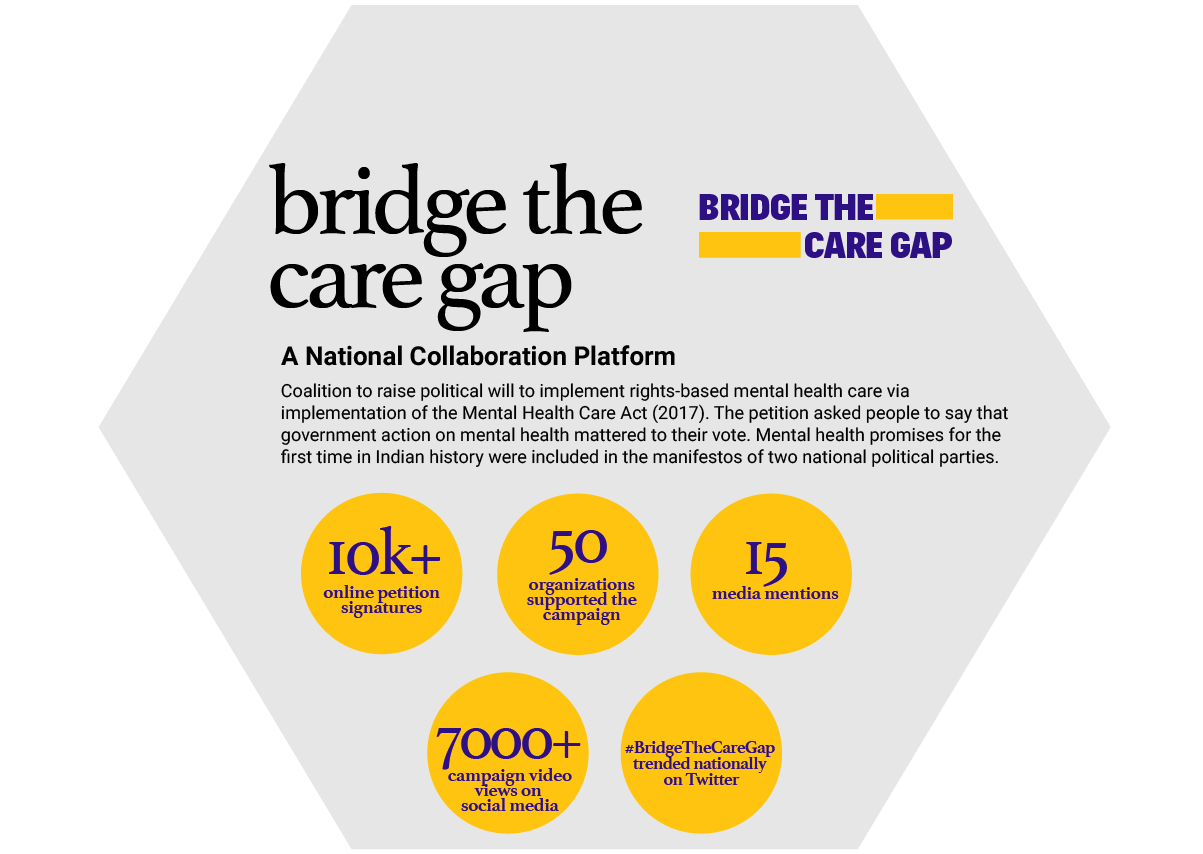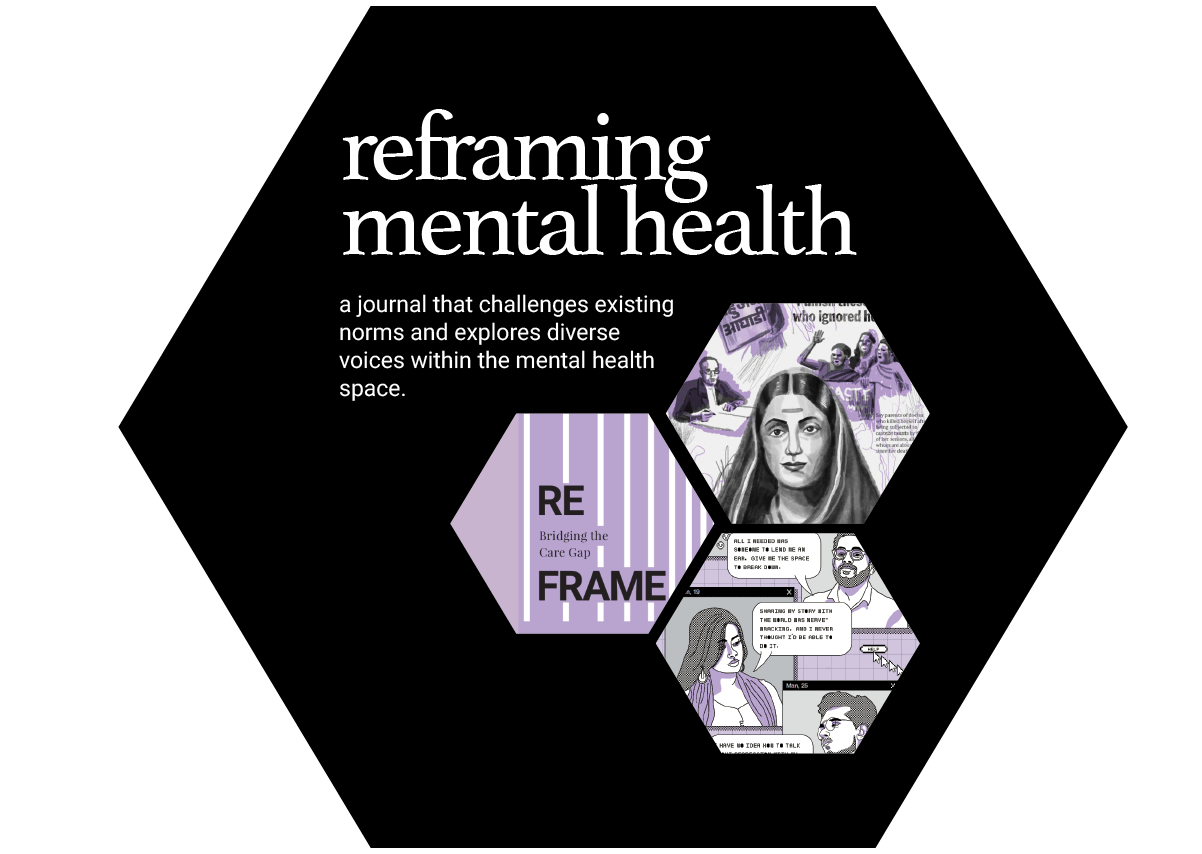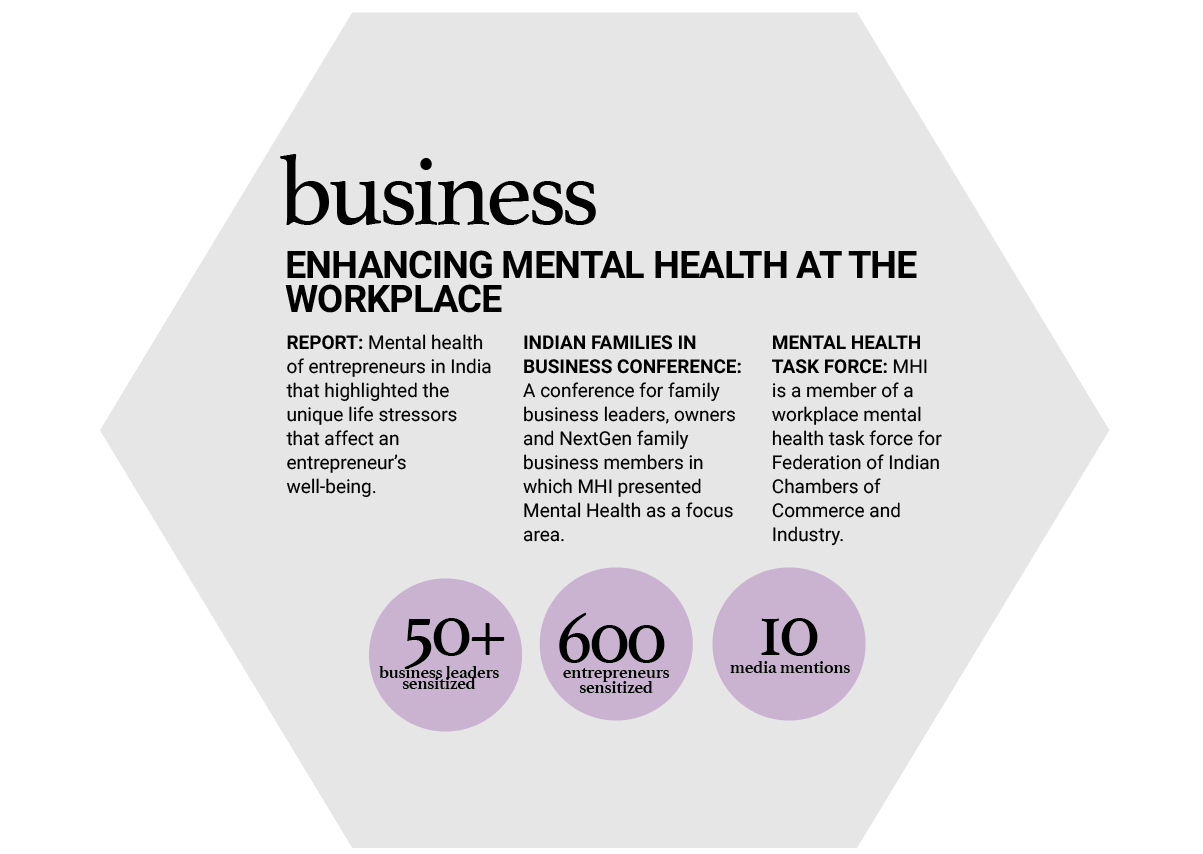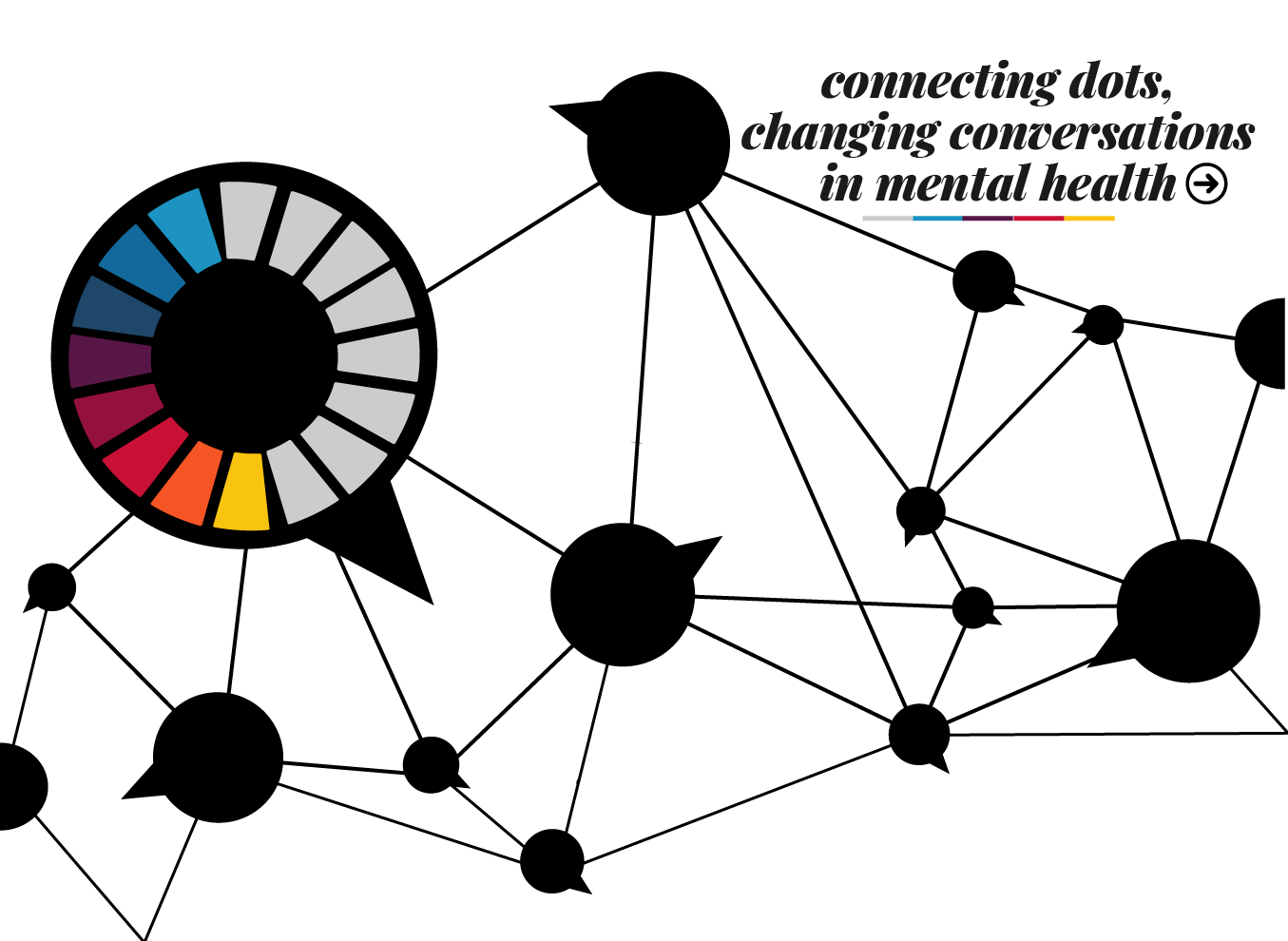How our approach has shaped the initiatives that we’ve invested in this year (2019-2020)
At the heart of our work, is the premise that mental health cannot be addressed in isolation and requires a contextual approach. Through our initiatives we strive to interrogate and disrupt dominant mental health paradigms that till date have pinned the onus of well-being and mental health on the individual. This year, we launched three initiatives that aimed to stir and change conversations around mental health.
First among these was an advocacy campaign ‘Bridge the Care Gap’ that rallied public support for implementation of India’s Mental Health Care Act (2017). In a distinct shift from traditional approaches to mental health campaigns, Bridge the Care Gap centered the voices of those with lived experiences — widening the scope of who gets to participate in such conversations.
Our second edition of ReFrame, our annual mental health journal, also addressed the care gap in mental health, carefully deconstructing the dominant lens of a ‘treatment gap’ that promotes a biomedical approach to mental health and discounts the influence of social, cultural, economic and political factors. Our third initiative looked at unique stressors in the workplace, particularly those experienced by entrepreneurs, and how these stressors impact the mental health and wellbeing of entrepreneurs.

Bridge the Care Gap Campaign
Bridge the Care Gap
MHI spearheaded a national campaign 'Bridge The Care Gap' (BCG) that advocated for effective implementation of India's Mental Health Care Act (2017). BCG was a public advocacy campaign that asked citizens to sign a petition saying that their vote will be influenced by the political attention paid to mental health. Campaign activities also included in-person interviews with political parties prior to drafting their political manifestos, radio interviews with stakeholders, video-documentaries of first-person accounts from user-survivors, and influencer voices.
Garnering support from over 50 organisations, securing 10,000+ signatures via an online petition and coverage by over 15 mainstream and alternative media platforms — the campaign made history by successfully influencing two political parties to include mental health in their manifestos.
“Through our initiatives, we strive to interrogate and disrupt dominant mental health paradigms that till date have pinned the onus of well-being and mental health on the individual.”

Reframing Mental Health
Reframing Mental Health
MIH released the second edition of ‘ReFrame’—a journal that challenges existing norms and explores diverse voices within the mental health space. This year, the theme for ReFrame was ‘Bridge the Care Gap' and through a compilation of articles of lived-experiences, from marginalised voices and based on alternative constructs to the Western-centric, bio-medical supply-demand equation of mental health care—MHI aimed to ’reframe’ a comprehensive approach to mental health and social care needs that can be used to design interventions, services, support and advocacy.

Mental Health at the Workplace
Mental Health at the Workplace
MHI addressed mental health at the workplace through a research study on the mental well being of entrepreneurs in India, in partnership with ASCENT Foundation. The study highlighted unique life stressors that affect an entrepreneur’s well-being and underlined the need for specific, relevant and flexible mental well-being support at the workplace. MHI also contributed in the capacity of a thought leader, towards a nation-wide conference for family business leaders, owners and NextGen family business members, presenting Mental Health as a focus area.
